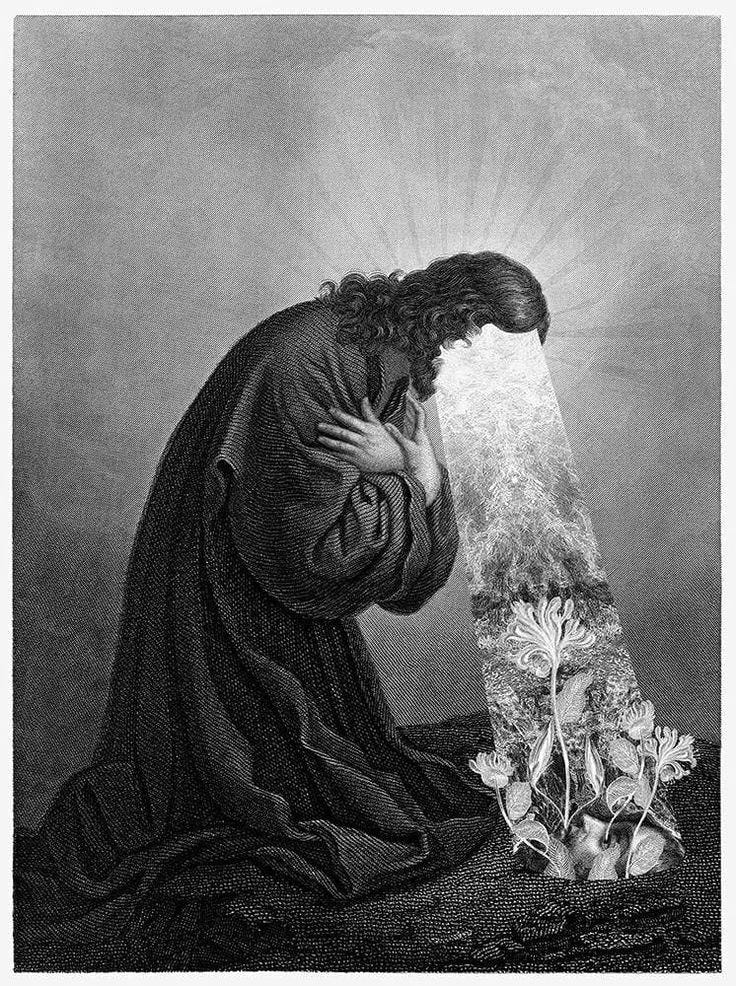The Man from Earth: My Psychological & Theological Interpretation
The Immortal Mind! Brilliant philosophical dialogue that leaves me questioning everything I know about history, religion, and human experience.
Hi there! Last week was quite busy and exhausting, but I somehow managed to squeeze in some reading and writing time. For the past 2 months, I was quite into serious literature and needed a break. So, I picked up "The Empyrean" series by Rebecca Yarros for some light reading, or should I say mind-rotting?
But I found myself drawn back to one of my favorite thought-provoking works by Jerome Bixby: "The Man from Earth". Guess I can't escape my tendency toward crazy thinking and philosophizing, eh?
There's something so powerful about stories. We humans are so connected to them that they've become the foundation of our history and evolution. I read somewhere that we're so wired for stories that our minds continue telling them even in our dreams, when our physical bodies are non-responsive.
And this masterpiece by Bixby is exactly that kind of tale for me. No matter how many times I watch or read about it, the central concept continues to fascinate me. Such a simple premise — what if a man could live for thousands of years? — can lead to such deep conversations about history, religion, and human experience. Wonderful!
So here I am, writing down my thoughts about this incredible idea. Maybe sometimes the best philosophical discussions come not from heavy academic literature, but from simple stories and ideas that ask the right questions in just the right way.
So, the movie presents a thought experiment: "What if a man, John Oldman, had lived for 14,000 years?" He shares his life experiences while his friends question him — some trying to believe or disprove him, others simply enjoying the intellectual thought without taking sides. It makes me think a lot about the limits of human belief, the nature of our historical truth, and the psychological effects of time on identity and memory.
What's more interesting is that it doesn't present something you must believe or interpret in a fixed, certain way, like typical science fiction. Instead, it's simply a thought experiment that lets you explore thousands of possibilities of "what if" and "what could have been." It uses dialogue rather than action to question existentialism.
BTW, have you watched it? If yes, I'm so eager to know your thoughts about it — leave your comments or reply back!
First of all, what does it mean to remember 14,000 years? How has his brain adapted to the huge accumulation of knowledge and experiences? In that case, how would one perceive reality and human institutions?
Our human brain is wired for forgetting, so how does John retain important information and filter out irrelevant memories? What's more intriguing is whether this immortality makes him emotionally detached — meaning, does he just process the passage of time and adapt to societal changes? Because we tend to do that as we age and get old. So, if death gives urgency to life, what happens when that urgency is removed from the equation?
One other thing that I found quite interesting is the need for certainty in his friends. As we all know, we struggle to sit with uncertainty. That need for closure — that drive to resolve ambiguity and the unknown — can stop us from even entertaining ideas that contradict our current beliefs.
Even with scientifically proven facts, we tend to cling to our existing beliefs and take them as truth. So, what are the boundaries of acceptable thoughts? In the movie, despite being scientists and intellectuals, John's friends show a strong psychological need to either prove or disprove his story. Accordingly, that can be put in a way that the scientific mind is exploratory, yet it is bounded by existing archetypes.
Let's talk about the truth of history...
While we have archaeological findings and artifacts that tell us what happened in the past, that's all in fragments. The rest, we fill in the gaps with our best possible explanations of what could have happened based on the conditions of those times. This means, our history isn't just a record of events — it's a construction shaped by cultural memory.
And that brings another interesting question: If John is the only eyewitness to these ancient events, could his version of history differ from what we know?
This reminds me of a concept I read somewhere (I can't remember where — ah, bad memory, I guess!) — memory is reconstructive rather than reproductive. And our memories are fluid and shaped by context.
Unlike machine memory, which is reproductive, our brains don't store and recall past events like video or audio recordings that perfectly reproduce what happened. Instead, our memory is reconstructive — we don't store experiences in a fixed, unchangeable way. Because when we recall an event, we rebuild the memory using fragments of information, filling in gaps with assumptions that are influenced by our new experiences, emotions, and biases at that point in time. This is actually a gift, as it allows us to perceive the past in an evolved way.
(Ah, now I remember — I read it in "The Dragons of Eden" by Carl Sagan and some from "The Truth of Fact, the Truth of Feeling")
So, shouldn't John's memory be reconstructive rather than perfect recall? Right? And now, how much of his memory is truly accurate? Has his mind unconsciously reshaped or simplified certain historical events?
The most provocative claim in the movie is that John was the historical figure of Jesus, but not divine — just a man whose teachings were mythologized (is that even a word?!) over time. For argument's sake, if we believe Jesus was simply a wise man whose words were exaggerated into miracles, what does this say about the origins of religious faith?
This makes me think of Friedrich Nietzsche's "Death of God." I would say Nietzsche's phrase "God is dead," from The Gay Science and later Thus Spoke Zarathustra, shouldn't be taken as a literal statement about the existence of God but as a philosophical thought that modern society no longer relies on religious belief as its foundation for meaning and truth.
I think that in religious thought, the concept of God gives a clear moral structure, purpose, and order to our existence. We look to divine intervention and all the sacred texts to understand our place in this universe. And Nietzsche argues that as science and rational thought progress, the idea of God has lost its power over human consciousness.
If you think of it this way, this "death" of God leaves a huge emptiness, and we are faced with the burden of creating our own meaning. That means humanity must take full responsibility for defining its own values and purpose — and oh boy! that's a very unsettling thought for many. In simple terms, without God, what now?
Coming back to the movie, John's claims suggest that the foundation of faith is not based on divine truth but on human reinterpretation and storytelling. Do you believe this statement is true?
Recently, while reading "The Myth of Sisyphus" by Albert Camus, the opening revolved around "Why Does Death Matter?" This question fits perfectly into our context: Is immortality a blessing or a curse? This burden of eternity! Bringing back my question from earlier — if death were removed from the equation, would life still hold urgency and meaning?
John describes losing many loved ones and constantly moving to avoid detection. This level of loneliness must surely leave an impact from outliving generations, and I wonder how John copes with this emotional detachment. I don't think he will ever feel at home in a world that is constantly changing, where he must change identities over and over again. And how strong must one's will be to not lose their own sense of self!
After watching this 1.5-hour movie filled with revelations, I don't want to focus on proving or disproving John's truth. Instead, I'm more interested in how we, as finite beings, handle the unknown — our ability to entertain the possibility of the extraordinary without demanding absolute certainty. To be open to the infinite possibilities that life offers beyond our limited understanding.
A Note To You
So, what do you think? Would immortality be a gift or a burden? And how would it reshape your perspective on life, truth, and the world around you? Let me know your thoughts — I'd love to keep this fascinating conversation going.







I have watched the movie quite sometime ago, not denying that it was more for John's ridiculous revelations than for any broaching questions. Since you started drawing parallels with Nietzsche's work and Camus' Myth of Sisyphus I would like to go a little further back to the Greek myth of Prometheus who was punished by the gods to suffer an eternity of pain by having his innards eaten by vultures for merely bringing mankind the gift of fire. Eternal torment has been portrayed as a form of bane for longer than any of the modern or post modern philosophy shaped up. Not saying this must have entirely skipped the minds of the writers of the film, but I would assume that they glided over these though provoking questions when writing the character of John. In retrospect, I would assume that he has been through it all and back. He should be immune to any pain or sorrow, be it the loss of a loved one or physical pain not unlike something he must have gone through during his crucifixion. So, contrary to his mythological counterpart, Prometheus, I would assume he would have developed a scar tissue or an emotional callus of sorts that shielded him from an "Eternal Torture". All of this assuming he has the same physiology of a human being, of course.